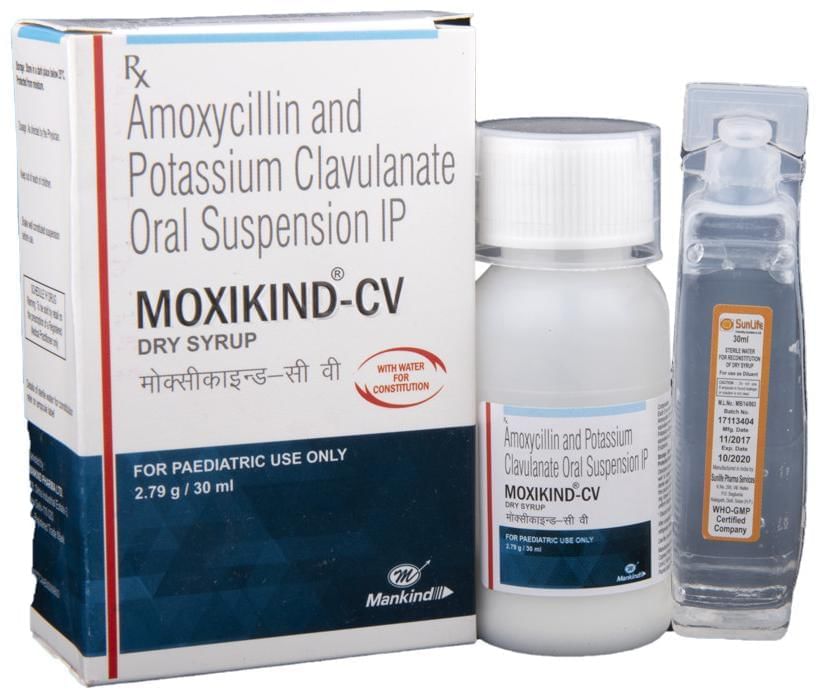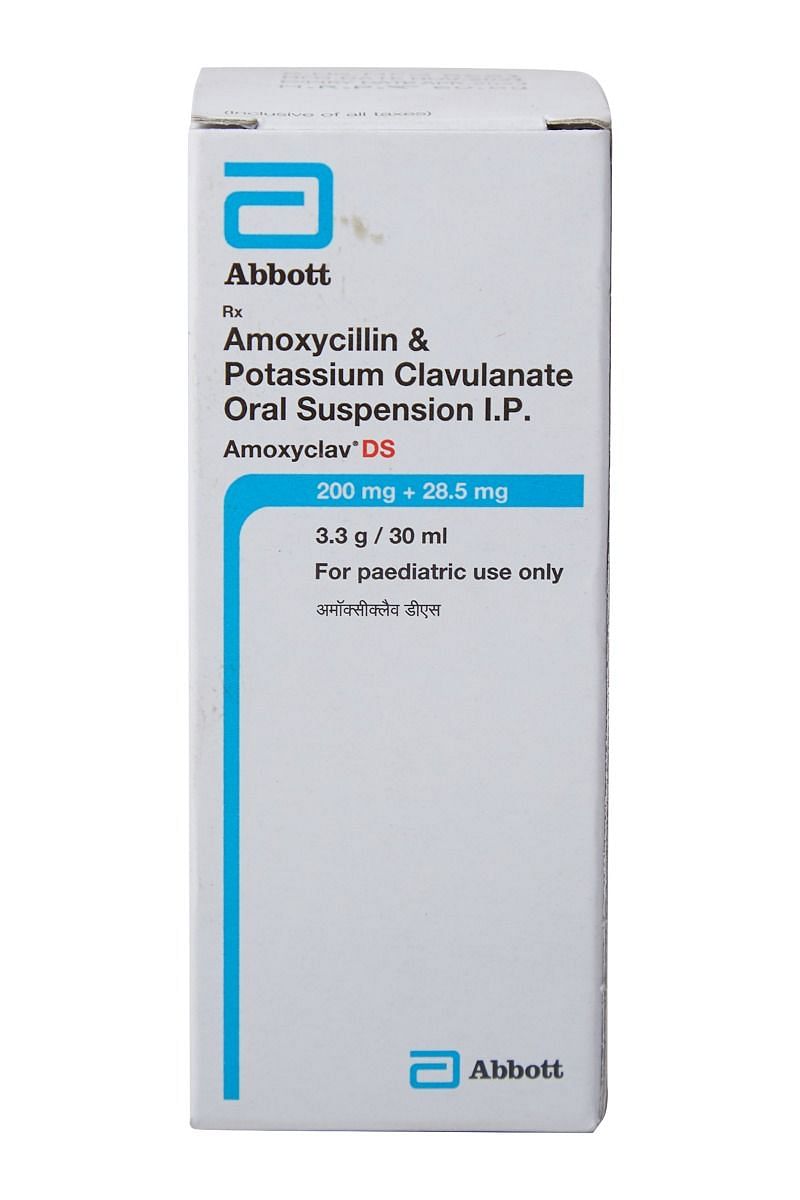
Joviclav Dry Syrup
Manufacturer
Jovimag Lifesciences
Salt Composition
Amoxycillin (200mg) + Clavulanic Acid (28.5mg)
Key Information
Short Description
Joviclav Dry Syrup is an antibiotic medicine that helps treat bacterial infections of the ear, nose, throat, chest, lungs, teeth, skin, and urinary tract.
Dosage Form
Dry Syrup
Introduction
Joviclav Dry Syrup is an antibiotic medicine that helps treat bacterial infections of the ear, nose, throat, chest, lungs, teeth, skin, and urinary tract. It is capable of killing bacteria that have become resistant to other therapies and thus also helps treat tuberculosis that is resistant to other treatments.
Directions for Use
Your child must complete the entire course of antibiotics. Stopping too soon may cause the bacteria to multiply again or cause another infection.
Safety Information
Side Effects
No common side effects listed.
How it works
Joviclav Dry Syrup is an antibiotic. It has two active agents amoxycillin and clavulanic acid. Amoxycillin works by preventing the formation of the bacterial protective covering (cell wall) essential for the survival of the bacteria. Whereas clavulanic acid serves a special purpose of inhibiting an enzyme (beta-lactamase) that is produced by resistant bacteria. This makes the combination of amoxycillin and clavulanic acid an effective line of treatment for many types of infections.
Quick Tips
Your child may have a bitter taste in the mouth after the intake of Joviclav Dry Syrup. Eating citrus fruit or sipping plenty of water or fruit juice may help. Encourage your child to drink plenty of water in case diarrhea develops as a side effect. Never give Joviclav Dry Syrup until and unless prescribed by the doctor. Do not give Joviclav Dry Syrup to treat common cold and flu-like symptoms caused by viruses. Never save medicine for future illnesses. It cannot be said whether the same medicine will work on future infections. Check ‘expiry’ before giving Joviclav Dry Syrup to your child. Immediately discard all the expired medicines. Stop Joviclav Dry Syrup immediately if your child develops an itchy rash, facial swelling, or breathing difficulty. Report to the doctor without any delay.
Related Medicines

Moxikind-CV Dry Syrup

Advent 228.5mg Dry Syrup Tangy Orange

Amoxyclav Dry Syrup

Clavica Dry Syrup

Manox Clav 200 mg/28.5 mg Dry Syrup

Sunclav Dry Syrup

Cipmox CV Dry Syrup

Moxivo CV Dry Syrup

Eradiclav Duo Dry Syrup

Rapiclav Dry Syrup
Frequently asked questions
Can other medicines be given at the same time as Joviclav Dry Syrup?
Joviclav Dry Syrup may interact with certain medications or substances. It is crucial to inform your child's doctor about all other medications they are taking before starting Joviclav Dry Syrup. Additionally, consult your child's doctor before administering any medicine to your child.
Can I get my child vaccinated while on treatment with Joviclav Dry Syrup?
Antibiotics typically do not interfere with vaccine ingredients or cause adverse reactions in children who have recently received vaccinations. However, it is recommended to avoid vaccination until the child has recovered from any illness they might be experiencing. Once your child feels better, a vaccine can be administered.
Which lab tests may my child undergo while taking Joviclav Dry Syrup on a long-term basis?
Periodically, during prolonged therapy with Joviclav Dry Syrup, the doctor may consider monitoring kidney and liver function tests to ensure your child's well-being.
Can I give a higher than the recommended dose of Joviclav Dry Syrup to my child?
Giving a dosage higher than the recommended amount can increase the risk of side effects. If your child experiences worsening symptoms, consult your doctor for reassessment.
Can I stop giving Joviclav Dry Syrup to my child when the symptoms are relieved?
Do not discontinue administering this medication unless the full course is completed, even if symptoms subside. Symptoms may improve before the infection is fully cleared. Therefore, continue taking the medication as prescribed until it is finished.
Can the use of Joviclav Dry Syrup cause diarrhea?
Joviclav Dry Syrup can sometimes lead to diarrhea due to its antibiotic properties. It can also disrupt the beneficial bacteria in your child's stomach, causing diarrhea. In case of diarrhea, encourage drinking fluids like water. If the problem persists and you notice signs of dehydration, such as reduced urination with dark-colored and foul-smelling urine, seek advice from a doctor before administering any other medication.
Do all viral common colds result in secondary bacterial infection?
In most cases, bacterial infections do not follow viral infections. It is often unnecessary to administer antibiotics when dealing with a viral cold. However, if you choose to use antibiotics, consult your child's doctor.
The mucus coming out of my child’s nose is yellow-green. Is it a sign of a bacterial infection?
Yellow or green mucus in the nose does not always indicate the need for antibiotics. During common colds, mucus may thicken and change color from clear to yellow or green. Symptoms usually persist for 7-10 days.
Is there any sign which shows that my child needs immediate medical attention?
Seek immediate medical care if your child experiences serious allergic reactions (difficulty breathing, skin rash), gastrointestinal problems (diarrhea), or liver damage (weakness, pallor, vomiting). While rare, these side effects are significant and require expert medical attention.


